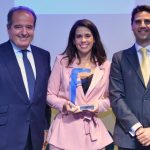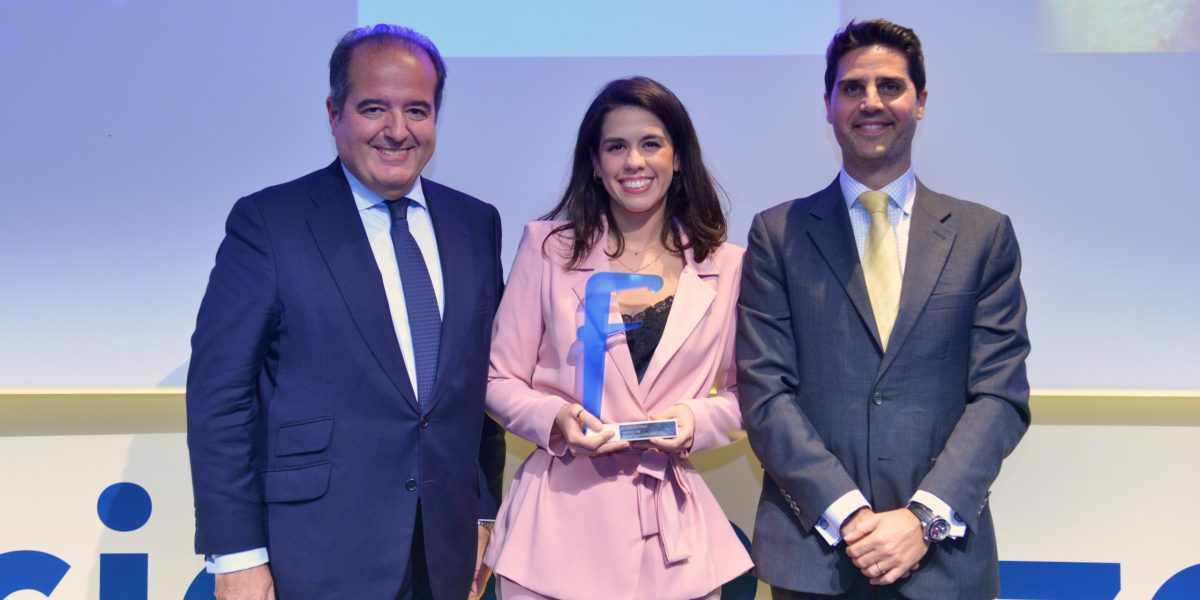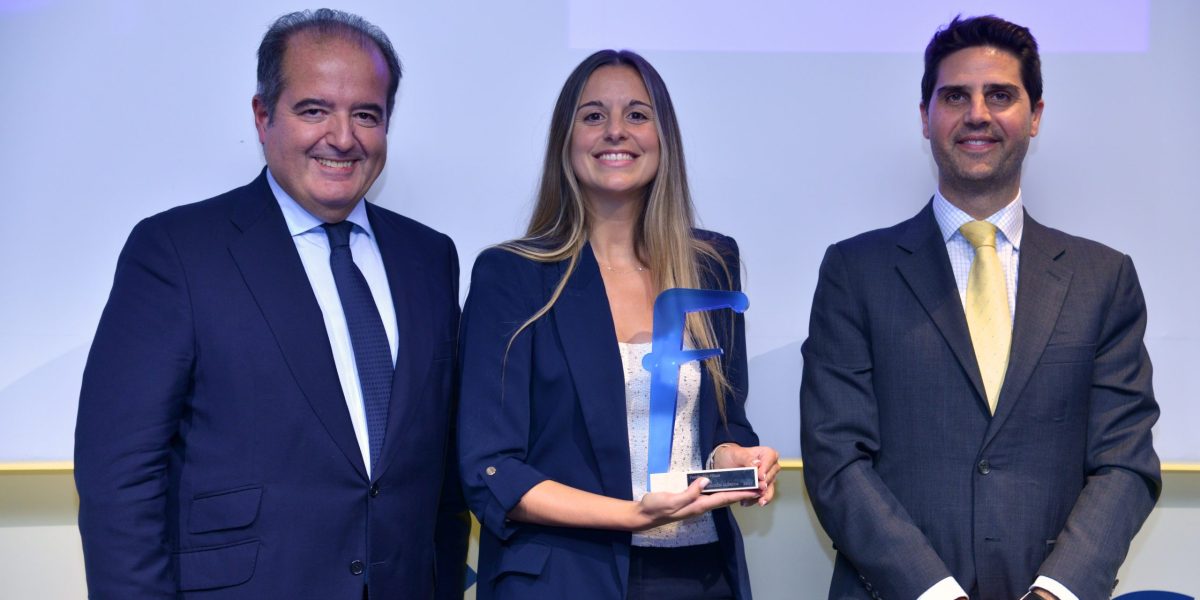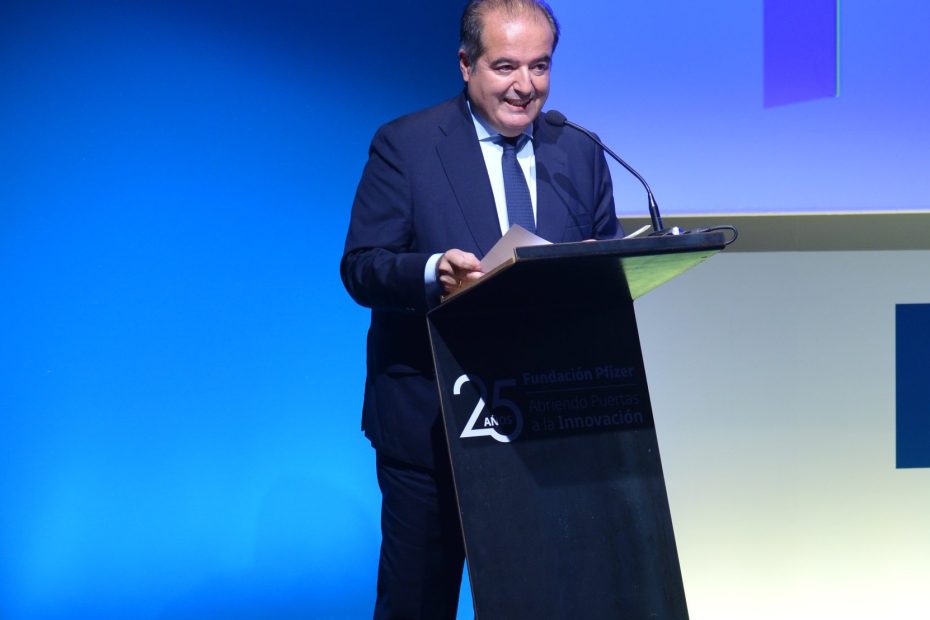

According to the survey “Social perception of science and innovation in health”, carried out by the Pfizer Foundation, 76% of Spaniards expect that the next great advance in science related to health will be to achieve a cure for cancer. This is just a sample of the will of the foundation – which this Tuesday celebrated its 25th birthday with an event in Madrid -, a mission that its president, Sergio Rodríguez, summarizes as “promoting science, technology and innovation; promote its approach to society to respond to the needs of the system to benefit the health and well-being of the population.”
“It is not easy to get here,” Rodríguez pointed out about the journey of the Pfzer Foundation in this last quarter of a century, in which some initiatives it has promoted, such as the Scientific Innovation Awards for Young Researchers (also delivered on Tuesday), keep their validity alive.
Evolution
As I explained Emilio Moraleda, founding trustee of the Pfizer Foundationthe project has evolved in tune with new times. “In the first years, more analog than digital, at the foundation we talked mainly about diseases and healing, or healthy aging. In recent times, actions and programs aimed at prevention and promotion of good health prevail.
Moraleda focused on his personal experience within the foundation. “It has given me a closer and more emotional vision of social issues; “what has to do with children, the elderly and the most vulnerable people.” And it added the privilege of being able to enjoy, on the front line, the work of a large group of researchers from the country.
Among the wide range of projects illuminated by the Pfizer Foundation in these 25 years, Emilio Moraleda is left with two. We have a lot in commonwhere retired people went to schools to advise and reflect on healthy habits with boys and girls between 6 and 12 years old. On the other hand, City Salud consists of an educational platform aimed at boys and girls from 8 to 12 years old, teachers and families that also emphasizes health promotion, along with the importance of correct hygiene or the protection of the environment.
Opening doors to Innovation
Sergio Rodríguez insisted on the strategic shift experienced by the foundation in recent years, especially since 2017.. “Society evolves, and so do its health needs,” said the president of the Pfizer Foundation. “New technologies have opened an unimaginable field in science and the health system to improve diagnosis, medical care and the control or monitoring of pathologies. “We are focused on promoting scientific, technological and social innovation as a driving force for improving health.”
The motto of the 25th anniversary of the Pfizer Foundation is “Opening doors to Innovation.” In this sense, Rodríguez assured that they have opened the door to entrepreneurs, researchers, students and disseminators. All this in the hands of a wide and growing network of collaborating entities and agents. “In short, it is an opening to the exchange of knowledge and collaboration, thanks to the holding of multiple forums that address health innovation from all aspects.”
“The health sector is one of the most changing and dynamic. By necessity it has to continue transforming,” said Sergio Rodríguez. “You are affected by advances, health policies, new diseases or social changes. In this transformation, the pharmaceutical sector plays an important role, not only because of its research capacity, but because it provides tools and programs that help the health system to continue advancing.”
Rodríguez added that, from the Pfizer Foundation, they will continue to support change “with ideas, projects and improvement tools” on the path towards “health for all”, and as support “for those who want to innovate in this environment”, whether they are entrepreneurs. , researchers or other professionals. “Health is the most precious asset. “Many people and organizations work for it every day.”
Other activities
The foundation is also responsible for sociological studies. One of the latest, presented with the FAD Juventud Foundation, addresses youth postures regarding health care and environmental sustainability.
On October 18 and 19, the VI edition of the Inno-Makers Health hackathonthis time with the focus on capturing innovative ideas around antibiotic resistance.
The promotion of STEAM vocations crystallizes at the Pfizer Foundation in programs such as Health Guardians 2030 or Science to Live Itwhere students can closely follow the day-to-day life of a scientist. “It serves as a source of inspiration,” said Sergio Rodríguez.
The Pfizer Foundation has launched the 8th Challenge and-Dea Saludin collaboration with the Galician Public Foundation for Biomedical Research Galicia Sur (FPGIBGS) and the Galician Public Foundation for Biomedical Research INIBIC (FINIBIC). This edition consists of finding technological solutions to improve treatment adherence, approach and care of patients who must undergo dialysis on a regular basis.
In the academic field, the Polytechnic University of Madrid, through its UPM Innovation and Entrepreneurship Programs (I&E UPM) and the Pfizer Foundation, organize the Workshops on Technological Innovation in Health (WIT Salud) that seek to open debate on trends and opportunities in technological innovation and entrepreneurship in the digital area of the health sector.
XXV Scientific Innovation Awards for Young Researchers
The Pfizer Foundation presents these awards, aimed at scientists up to 40 years old who carry out their research work in Spanish institutions or in collaboration with foreign institutions, both public and private. Their works must have been published in scientific journals cited in the Science Citation Index throughout 2023.
In the Basic Research category the award went to Ana Paredes, from the National Center for Cardiovascular Research (CNIC)for his work “γ-linolenic acid in breast milk controls metabolic maturation of the heart”, published in Nature Magazine. This research demonstrates that gamma-linolenic acid (GLA) in breast milk activates a signaling mechanism that promotes metabolic maturation of the heart after birth.


Aina Oliver Caldés, researcher at the Hospital Clinic of Barcelona is the winner in the category of Clinical Research. It has done so with the study “Fractionated initial infusion and booster dose of ARI0002h, a humanised, BCMA-directed CAR T-cell therapy, for patients with relapsed or refractory multiple myeloma (CARTBCMA-HCB-01): a single-arm, multicentre , academic pilot study”, published in Lancet Oncology.
As he explained, “thanks to this trial, in which several Spanish hospitals have participated, the effectiveness and safety of the ARI0002h immunotherapy, developed at the Hospital Clínic of Barcelona, has been proven in patients with multiple myeloma who had relapsed on several lines. of treatment and that they did not have an effective therapeutic option.”


